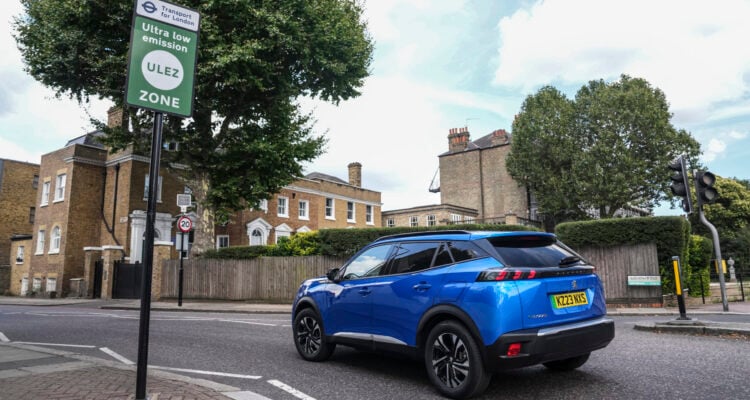Transport for London (TfL) has recently announced its decision to end the Ultra Low Emission Zone (ULEZ) vehicle scrappage scheme, sparking debate among residents, environmental groups, and motorists alike.
The scheme, which provided financial assistance to those scrapping older, more polluting vehicles, was originally designed to ease the financial burden of upgrading to cleaner vehicles as part of efforts to improve air quality in the capital. With the decision to end the scrappage scheme, questions have been raised about the rationale behind this move and the impact it may have on the public. The TfL have closed the scheme for new applicants from 7th September 2024.
The ULEZ was introduced in central London in 2019 and later expanded to cover a larger area. It was aimed at reducing harmful emissions by charging older vehicles that do not meet stringent emissions standards. To support this transition, TfL launched a scrappage scheme to help lower-income Londoners, small businesses, and charities replace or retrofit their vehicles to comply with ULEZ standards. The scheme offered grants to those who scrapped their non-compliant vehicles and opted for cleaner alternatives, such as electric or hybrid cars.
The ULEZ has been widely praised for its role in reducing nitrogen dioxide (NO2) levels and improving public health by cutting emissions from older diesel and petrol vehicles. However, the financial implications for vehicle owners, particularly those in lower-income brackets, led to the introduction of the scrappage scheme, which helped mitigate the impact of ULEZ charges.
The decision to end the scrappage scheme has been attributed to several factors:
- Budget Constraints: TfL, like many other public bodies, has faced significant financial pressures, particularly following the COVID-19 pandemic, which severely impacted revenue from public transport fares. With limited funds available, TfL has been forced to reassess its priorities and spending commitments. The scrappage scheme, while beneficial, was costly, and TfL may no longer have the budget to continue offering financial support on this scale.
- Wider Adoption of Cleaner Vehicles: As the ULEZ has expanded and public awareness of emissions standards has grown, a larger number of Londoners have already upgraded their vehicles to meet ULEZ requirements. The demand for scrappage grants may have diminished as more vehicles on the road now comply with the standards, reducing the perceived necessity for the scheme.
- Encouraging Long-Term Behavioural Change: TfL and the Mayor of London, Sadiq Khan, have long advocated for a shift towards sustainable transport options, such as walking, cycling, and public transport. Ending the scrappage scheme may be part of a broader strategy to discourage car ownership altogether, particularly in a city that is already congested and struggling with pollution. By removing the financial incentive to upgrade to cleaner cars, TfL may be signalling that the future lies in reducing reliance on private vehicles.
- Focus on Broader Environmental Policies: TfL has been working to implement a range of environmental initiatives, from expanding low-emission bus fleets to improving cycling infrastructure. The end of the scrappage scheme may allow for funds to be redirected towards other projects aimed at achieving the city’s overall environmental goals, such as reaching net-zero carbon emissions by 2030.
The decision to end the scrappage scheme has not been without controversy. Critics argue that many Londoners, particularly those in low-income households, still rely on their cars for essential travel, and scrapping their vehicles without financial support could be a significant financial strain. Small businesses, which may have benefitted from the grants to replace vans and lorries, could also face challenges in complying with ULEZ requirements without assistance.
Environmental campaigners, on the other hand, have expressed concerns that ending the scheme may slow the transition to cleaner vehicles. They argue that financial incentives are a key tool in encouraging individuals and businesses to adopt low-emission technologies and that removing this support could hinder progress in improving air quality.
TfL’s decision to end the ULEZ scrappage scheme marks a significant shift in the city’s approach to tackling vehicle emissions. While financial constraints and changing priorities have played a role in this decision, the impact on Londoners, particularly those who rely on older vehicles, remains to be seen.
As TfL continues to push for cleaner air and reduced emissions, it is likely that future policies will focus more on promoting sustainable transport alternatives, rather than supporting upgrades to private vehicles. Whether this approach will be successful in balancing environmental goals with the needs of residents and businesses is yet to be determined.




















